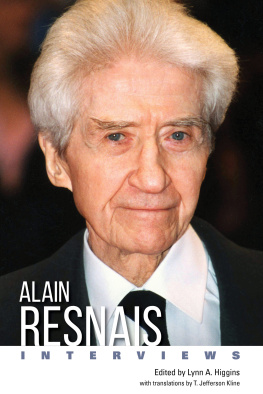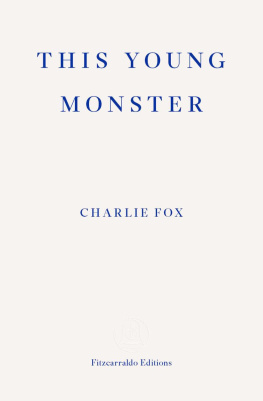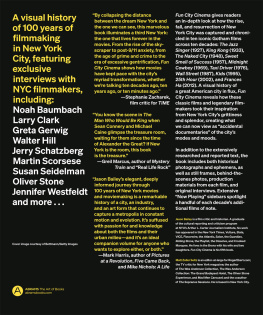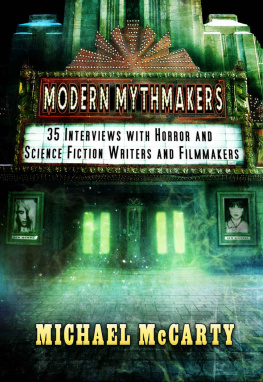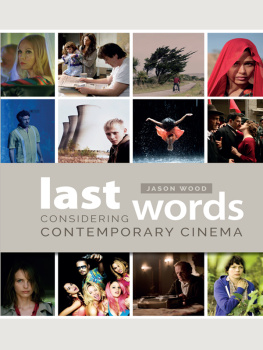Harmony Korine: Interviews
Conversations with Filmmakers Series
Gerald Peary, General Editor
Harmony Korine
INTERVIEWS
Edited by Eric Kohn

www.upress.state.ms.us
The University Press of Mississippi is a member
of the Association of American University Presses.
Copyright 2015 by University Press of Mississippi
All rights reserved
Manufactured in the United States of America
First printing 2015

Library of Congress Cataloging-in-Publication Data
Korine, Harmony.
Harmony Korine : interviews / edited by Eric Kohn. Conversations with filmmakers series
pages cm
Includes index.
Includes filmography.
ISBN 978-1-62846-160-2 (cloth : alk. paper) ISBN 978-1-62846-161-9 (ebook) 1. Korine, HarmonyInterviews. 2. Motion picture producers and directorsUnited StatesInterviews. I. Kohn, Eric, editor. II. Title.
PN1998.3.K675A5 2014
791.430233092dc23 2014024116
British Library Cataloging-in-Publication Data available
Contents
Eric Kohn / 2013
Andrea Linett / 1994
Lynn Hirschberg / 1995
Roger Ebert / 1995
Ray Pride / 1997
Mike Kelly / 1997
Antek Walczak / 1997
Rachelle Unreich / 1997
Geoffrey Mcnab / 1998
Sean OHagan / 1999
Jefferson Hack / 1999
Eric Kohn / 2013
Daniel Kraus / 2000
Richard Pea / 2000
John Pierson / 2000
Olivier Nicklaus / 2003
Jack Silverman / 2005
Aaron Rose and Ari Marcopoulos / 2008
Eric Kohn / 2008
Michael Tully / 2008
Ali Naderzad / 2008
Amy Taubin / 2008
Eric Kohn / 2009
Dennis Lim / 2009
Gwynned Vitello / 2011
Eric Kohn / 2012
R. Kurt Osenlund / 2013
Eric Kohn / 2013
Introduction
So many artists have staked a claim to creating subversive work over the years that the term has practically lost its value. But thats hardly the case for Harmony Korine, still one of the most prominent subversive filmmakers in America.
Ever since erupting onto the independent film scene as the irrepressible prodigy who wrote the screenplay for Larry Clarks Kids in 1992, Korine has retained his stature as the ultimate cinematic provocateur: He both intelligently observes modern social milieus and gleefully thumbs his nose at them at the same time. Now approaching middle age and arguably more influential than ever, Korine remains a knowingly sensationalistic and innovative creative mind.
But its been a bumpy ride. In 1995, Korine came out nowhere and became an overnight media darling, stealing the spotlight from Kids director Larry Clark and quickly taking advantage of the attention to project his bad boy image across the world. Korines origin story, the tale of a disillusioned NYU dropout discovered by Clark while skating around Washington Square Park, quickly overshadowed the sheer determination involved in his first completed screenplay. A serious film geek raised by a documentary filmmaker in Nashville, Korine turned Clarks idea for a movie about promiscuous teenagers whose antics ultimately lead to an AIDS dilemma into a full-fledged screenplay over the course of three weeks. The young writer recorded conversations with his friends as the basis for a highly naturalistic flow of dialogue, resulting in a seminal portrait of New Yorks underground youth culture. The movie portrayed a dark, depraved world, but it was especially haunting because it maintained a stark realism throughout.
A hit at Sundance and Cannes, Kids transcended the perceived limitations of its NC-17 rating and grossed $20 million at the box office, effectively turning Korine into a major pop culture figure. That same year, he appeared on Late Night with David Letterman and mystified a nation with a combination of wide-eyed innocence and scrappy demeanor. The media loved Korines playful behavior and foul mouth. He expressed adoration for vaudeville and certainly put on a good show, tap dancing for one interviewer and harassing pedestrians while hanging out with another. He was practically an auteur before even directing his first film.
The next few years unfolded in a whirlwind of creativity and scandalous gestures. Korines directorial debut, Gummo, was shot in rundown Nashville neighborhoods on 16mm, eschewing plot for bizarre asides and eccentric character sketches. The New York Times Janet Maslin infamously called it the worst movie of the year, an assertion that Gummos producers considered placing on its poster. Theres no doubting the potency of a movie so dense with images and information, which dances a line between experimental documentary and lyrical portrait of an alienated lower class with such riveting intensity that it transcends any easy categorization.
Set in a decrepit neighborhood ravished by a tornado, Gummo contains an ensemble of pariahs, including a mute boy who wanders about town wearing bunny ears, a pair of boxing skinhead siblings, a gay dwarf, and two young rebels who kill stray cats for cashone of whom, Solomon (Jacob Reynolds), receives questionable advice from his tap-dancing mother (Linda Manz). A kaleidoscopic peek into Americas marginalized inhabitants, Gummo tossed aside traditional plot in favor of freewheeling images and vignettes. It mystified even the viewers who loved it.
Next, Korine was invited to join the vaunted brotherhood of Dogme 95, the DIY movement kickstarted by Danish filmmakers Lars Von Trier and Thomas Vinterberg that required all participants to adhere to a set of arbitrary rules, like shooting on video with natural lights and no special effects. The sole American participant in the project, Korines effort (which admittedly broke some of the Dogme rules) was unsurprisingly brash, but also far more focused than his previous effort. The story of a schizophrenic man and his maniacal relatives (based on Korines uncle), Julian Donkey-Boy delivered a brutal, transgressive form of dramatic storytelling littered with eccentric digressions. Characterized by an ultra-grainy DV look and abrupt editing techniques, the film was anchored by Ewen Bremmers disturbing performance. It also owed much to German New Wave legend Werner Herzognow one of Korines major advocatesin the role of the boys crazed father. Critics were once again divided on the merits of Korines output, but there was no doubting that the attention to his burgeoning artistry continued to increase.
In the wake of Julian Donkey-Boy, he kicked off an ill-fated project called Fight in which hidden cameramen (including colleagues David Blaine and Leonardo DiCaprio) watched as Korine attempted to engage random street characters in violent brawls. After suffering major injuries and a handful of arrests, Korine abandoned the project; the completed footage has never screened publicly, and has become a central ingredient in the filmmakers irascible reputation, even once he cleaned up his act.
Korine was rarely sober when he made Fight, but drugs could hardly mollify the impact of fame and expectations barreling down on him from every direction. His much-publicized relationship with actress Chloe Sevigny, who had appeared in all of his completed features up until that point, ended badly. By the end of the decade, Korine abruptly vanished from the public eye, heading out to Europe for a depraved three-year interlude in his career that remains largely undocumented. This period culminated in 2003 with his admission to a methadone clinic.
Next page


